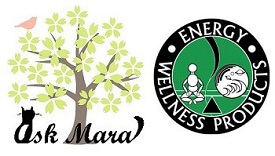Heart Health is what this month is all about! Heart disease remains the leading cause of death in developed nations. You as well as many others, may be concerned about keeping your heart healthy. Unfortunately, much of what people believe about preventing heart disease is out-of-date information.
For instance, the idea that avoiding cholesterol and animal fats will reduce your risk of heart disease simple isn’t true. Cholesterol and animal fats are not the cause of heart disease. Cholesterol only sticks to your arteries when it becomes oxidized from free radical damage and eating animal fats is not the cause of high cholesterol.
 The truth is that processed vegetable oils, not animal fats, are what increase your risk of hardening of the arteries. Furthermore, a high sugar diet and the high levels of insulin it produces are one of the biggest risk factors for heart disease, far more problematic than fats.
The truth is that processed vegetable oils, not animal fats, are what increase your risk of hardening of the arteries. Furthermore, a high sugar diet and the high levels of insulin it produces are one of the biggest risk factors for heart disease, far more problematic than fats.
More recent research shows that heart disease, like most degenerative diseases, is primarily caused by chronic inflammation and free radical damage to the lining of the arteries. This also causes the oxidation of cholesterol that leads to arterial plaque. Furthermore, there is no magic pill you can take to prevent this. Supplements and herbs may help, but the prevention of heart disease also requires adopting diet and lifestyle changes. Learn more about how you can keep your heart healthy in this month’s Sunshine Sharing. Check out some of my heart health favorites with NSP!
Heart Healthy – No to Heart Attacks and Stroke
Heart Health is important because heart disease is actually considered somewhat of a lifestyle disease because your risk for it is affected by how you live your life. Not smoking, regular exercise, eating a healthy diet, maintaining a healthy weight, and managing any heart related conditions can help you prevent heart disease, heart attacks and strokes. Below are symptoms you should keep in mind should you or a family member have a heart attack or stroke.
According to the CDC the following are Symptoms of a Heart Attack
- Chest pain or discomfort that is usually felt in the center or left side of your chest. It can last for several minutes or more and can come and go.
- Feeling Weak, light-headed, or faint. Sometimes you may break out into a cold sweat.
- Pain or discomfort in your jaw, neck or back.
- Pain or discomfort in one or both arms or shoulders.
- Shortness of Breath.
- Fatigue that is not usual or unexplained, nausea and vomiting. This is actually more common in women.
FAST Method
The importance with a stroke is that most symptoms are sudden and you need to get medical assistance quickly!
In fact, they have the act F.A.S.T. method to help.
F—Face: Check to see if one side of the person’s face droops when they smile.
A—Arms: See if one arm tends to go downward when you ask them to raise both arms.
S—Speech: See if the person’s speech is slurred by asking them to repeat a simple sentence.
T—Time: Call for a medical emergency if you see any of these signs or suspect a stroke.
According to the CDC, the following are Symptoms of a Stroke. Remember symptoms of a stroke usually occur SUDDENLY!
- Numbness or weakness in the arms, legs, or face, and more so if they occur on the same side of the body.
- Difficulty understanding what you are saying, general confusion and trouble talking or speaking.
- Problems seeing – can occur in one or both eyes/
- Difficulty walking, exhibiting a loss of balance or coordination, dizziness.
- Severe headache out of the blue with no previous known causes.
Join the Healthy Habits Challenge
Don’t take your health for granted. It is time to start managing your NOT your symptoms! Join our 13 week program that is packed full of information to help you develop healthier lifestyle habits!
Chronic Pain Support Group
If you or someone you know is living with chronic pain, consider joining our Zoom support group. We focus on sharing and building coping skills. If you are interested, send me an email for more information.
